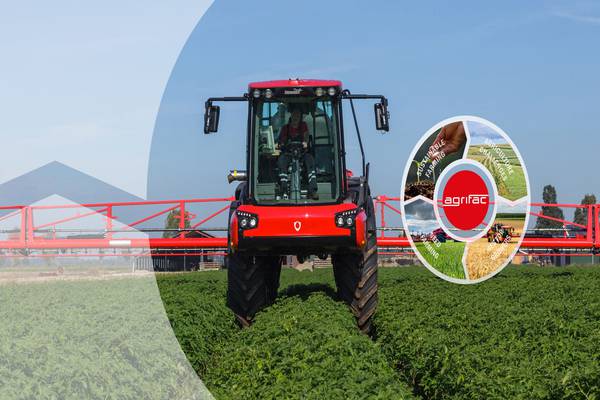Sustainable Agricultural Machinery
Drafted by: vijaychourey26@gmail.com
Sustainable agricultural machinery represents a paradigm shift in the farming industry, driven by the urgent need to address environmental concerns and ensure food security for a growing global population. Traditional agricultural practices have often relied on fossil fuel-based machinery, leading to environmental degradation and contributing to climate change. In contrast, sustainable agricultural machinery aims to minimize its ecological footprint while optimizing farm productivity. In this article, we explore the significance of sustainable agricultural machinery, its advantages, various types, and the innovations propelling the future of agriculture.
The Importance Of Sustainable Agricultural Machinery
Reduced Environmental Impact
One of the key advantages of sustainable agricultural machinery is its lower environmental impact. By transitioning to renewable energy sources such as solar power or electricity, farms can significantly reduce greenhouse gas emissions, air pollution, and noise pollution associated with traditional machinery.
Increased Efficiency and Productivity
Contrary to the misconception that sustainable machinery compromises productivity, these modern technologies often enhance overall efficiency. Precision farming techniques, for instance, enable targeted application of resources, minimizing wastage and maximizing crop yield.
Cost Savings and Long-Term Benefits
While the initial investment in sustainable agricultural machinery may seem daunting, the long-term benefits outweigh the costs. Lower energy expenses, reduced maintenance requirements, and potential government incentives contribute to significant cost savings over time.
Types Of Sustainable Agricultural Machinery
Solar-Powered Machinery
Solar-powered machinery harnesses the sun's energy to drive farm operations. Solar panels mounted on machinery or fixed installations capture sunlight and convert it into electrical energy, powering various equipment and irrigation systems.
Electric Tractors and Equipment
Electric tractors have emerged as viable alternatives to traditional diesel-powered tractors. They offer comparable performance while emitting zero tailpipe emissions, making them environmentally friendly and suitable for small and large-scale farms alike.
Precision Farming Technology
Precision farming technology integrates data, GPS, and automated machinery to optimize resource usage and crop management. Drones and sensors collect data on soil conditions, crop health, and weather patterns, enabling farmers to make data-driven decisions for better results.
Innovations In Sustainable Agricultural Machinery
Autonomous Farming
Autonomous farming machinery, equipped with advanced sensors and AI algorithms, can perform tasks without human intervention. These autonomous machines can optimize resource use, reduce labor requirements, and operate 24/7, leading to increased productivity.
IoT Integration
The Internet of Things (IoT) plays a crucial role in modern agriculture by enabling seamless communication between machinery and devices. IoT integration allows real-time data monitoring, predictive maintenance, and remote control of agricultural equipment.
Artificial Intelligence in Agriculture
AI-powered systems analyze vast amounts of data, offering valuable insights to farmers. From crop prediction to pest detection, AI applications optimize agricultural practices, leading to more sustainable and profitable outcomes.
Overcoming Challenges In Adoption
Initial Investment
The initial cost of acquiring sustainable machinery can be a barrier for many farmers, particularly small-scale ones. However, long-term savings and financial incentives can help offset these expenses.
Training and Education
To fully leverage the potential of sustainable machinery, farmers need training to operate and maintain these advanced technologies. Education programs and workshops can bridge this knowledge gap effectively.
Infrastructure and Support
The successful implementation of sustainable machinery requires adequate infrastructure, such as charging stations for electric equipment and reliable access to internet connectivity for IoT-based solutions.
Case Studies Of Successful Implementations
Farm X: Embracing Solar-Powered Machinery
Farm X, a family-owned farm, transitioned to solar-powered machinery for its irrigation systems and farm equipment. Not only did they significantly reduce their carbon footprint, but they also witnessed a considerable decrease in operational costs over time.
Farm Y: Harnessing Precision Farming Technology
Farm Y integrated precision farming technology, using drones and IoT-enabled sensors to monitor soil moisture levels and crop health. As a result, they optimized water and fertilizer usage, leading to improved crop yield and overall sustainability.
The Future Of Sustainable Agricultural Machinery
The future of sustainable agricultural machinery looks promising. Advancements in renewable energy sources, AI, and automation will lead to even more sophisticated and efficient farm practices. As technology continues to evolve, sustainable agriculture will become the cornerstone of global food production.






